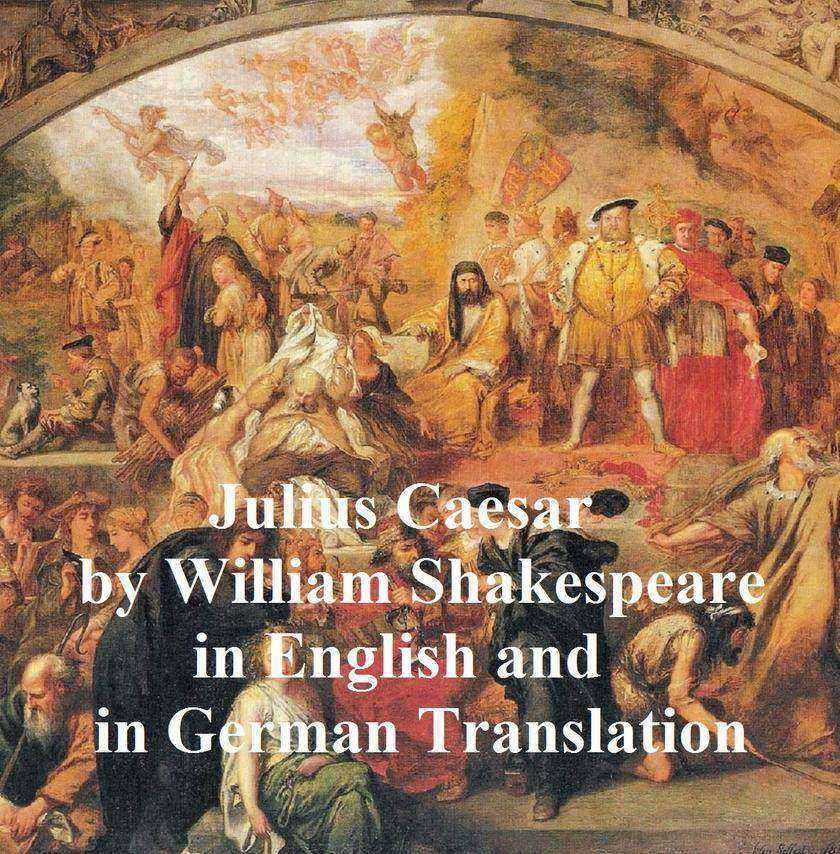
Julius Caesar, Bilingual Editon
¥8.09
The Shakespeare tragedy, in English with line numbers and translated to German by August Wilhelm von Schlegel. According to Wikipedia: "The ghost of Caesar taunts Brutus about his imminent defeat. (Copperplate engraving by Edward Scriven from a painting by Richard Westall: London, 1802.) The Tragedy of Julius Caesar, also known simply as Julius Caesar, is a tragedy by William Shakespeare, believed to have been written in 1599. It portrays the 44 BC conspiracy against the Roman dictator Julius Caesar, his assassination and the defeat of the conspirators at the Battle of Philippi. It is one of several Roman plays that Shakespeare wrote, based on true events from Roman history, which also include Coriolanus and Antony and Cleopatra."
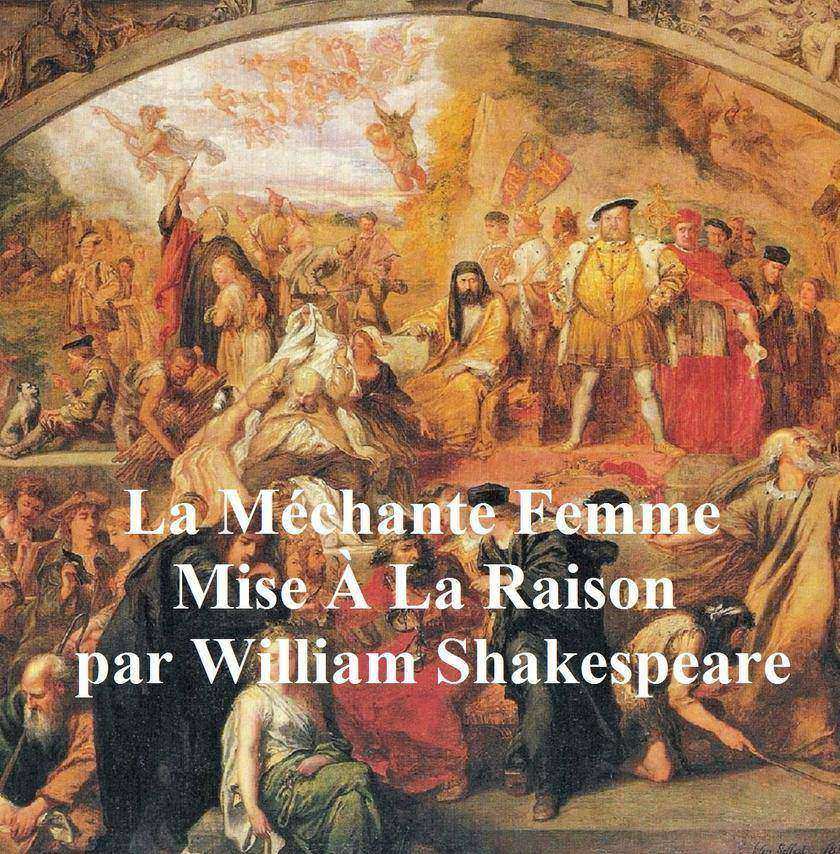
La Mechante Femme Mise a la Raison (The Taming of the Shrew in French)
¥8.09
Comédie de Shakespeare, traduite en fran?ais par Fran?ois Pierre Guillaume Guizot (1787 - 1874), historien fran?ais et homme d'?tat. Publié en 1862. Selon Wikipedia: "La Mégère apprivoisée est une comédie de William Shakespeare, qui aurait été écrite entre 1590 et 1591. La pièce commence par un dispositif d'encadrement, souvent appelé l'Induction, dans lequel un malicieux Nobleman trompe un bricoleur bourré du nom de Sly pour lui faire croire qu'il est lui-même un noble.Le noble a ensuite joué pour la diversion de Sly.Le complot principal dépeint la parade de Petruchio, un gentilhomme de Vérone, et Katherina, la musaraigne obstinée et opini?tre. Initialement, Katherina est une participante involontaire dans la relation, mais Petruchio la tempère avec divers tourments psychologiques - le ?domptage? - jusqu'à ce qu'elle devienne une épouse docile et obéissante.La sous-intrigue présente une compétition entre les prétendants de la s?ur plus désirable de Katherina, Bianca. "
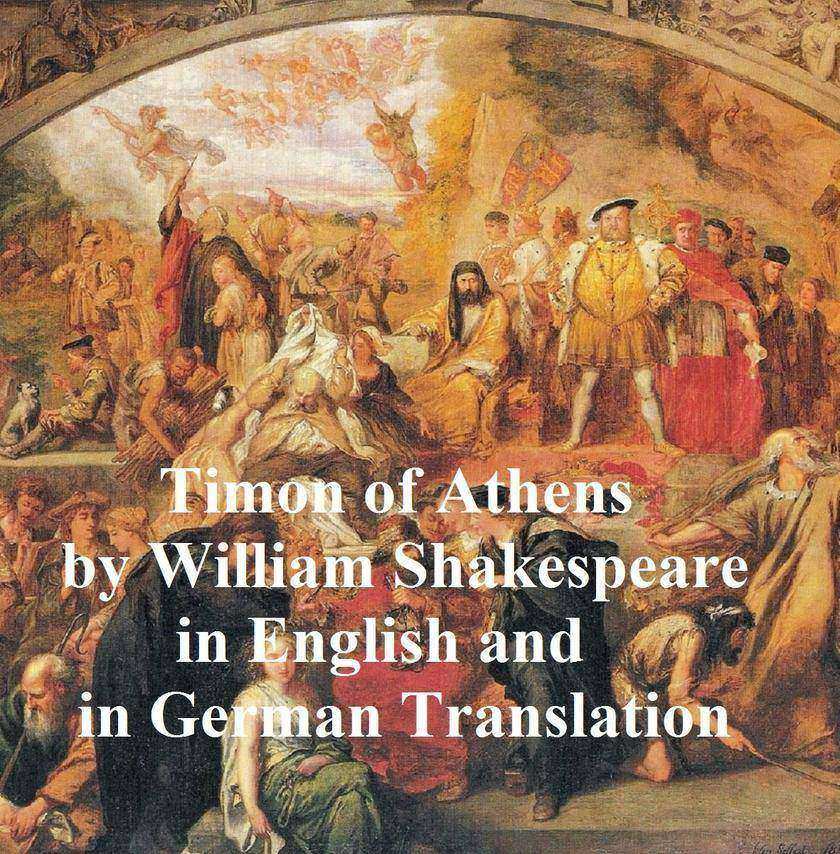
Timon of Athens/ Timon von Athen, Bilingual edition
¥8.09
The Shakespeare tragedy, in English, with line numbers, and translated to German. According to Wikipedia: "The Life of Timon of Athens is a play by William Shakespeare about the fortunes of an Athenian named Timon (and probably influenced by the philosopher of the same name, as well), generally regarded as one of his most obscure and difficult works. Originally grouped with the tragedies, it is generally considered such, but some scholars group it with the problem plays."
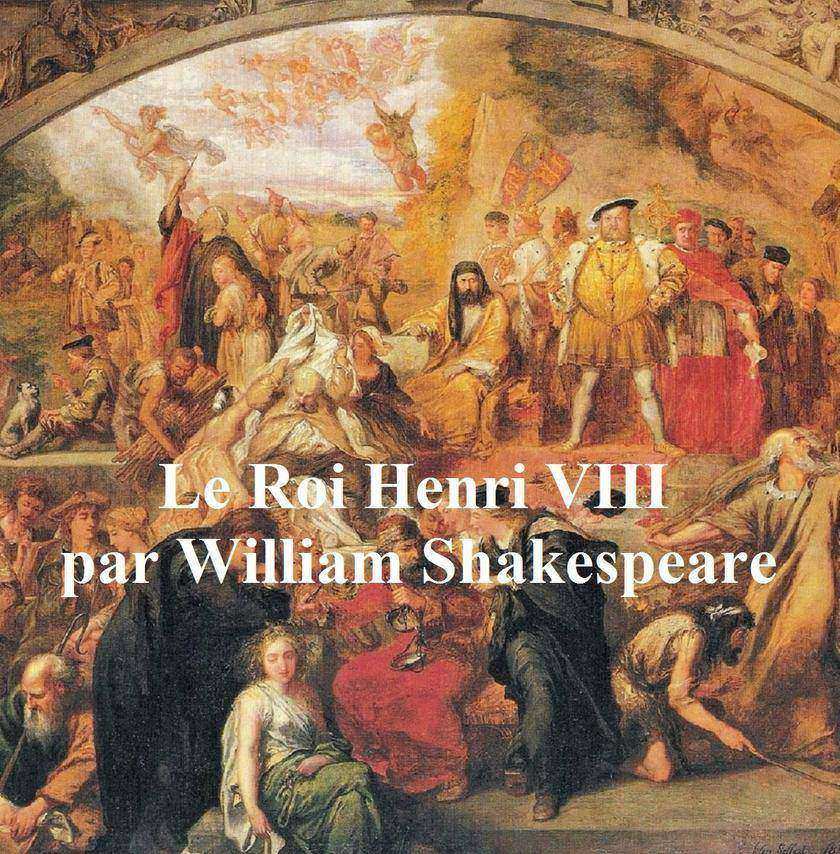
Le Roi Henri VIII (Henry VIII in French)
¥8.09
La pièce d'histoire de Shakespeare, Henry VIII, dans la traduction fran?aise. Selon Wikipédia: "La célèbre histoire de la vie du roi Henry VIII est une pièce d'histoire de William Shakespeare et (prétendument) John Fletcher, basée sur la vie d'Henry VIII d'Angleterre. dans les documents contemporains, le titre Henry VIII n'apparaissait pas avant la publication de la pièce dans le premier folio de 1623. L'évidence stylistique indique que la pièce a été écrite par Shakespeare en collaboration avec son successeur, John Fletcher, ou révisée par lui. de la fin des romans dans sa structure.Il est noté pour avoir plus de directions de scène que l'un des autres jeux de Shakespeare. "
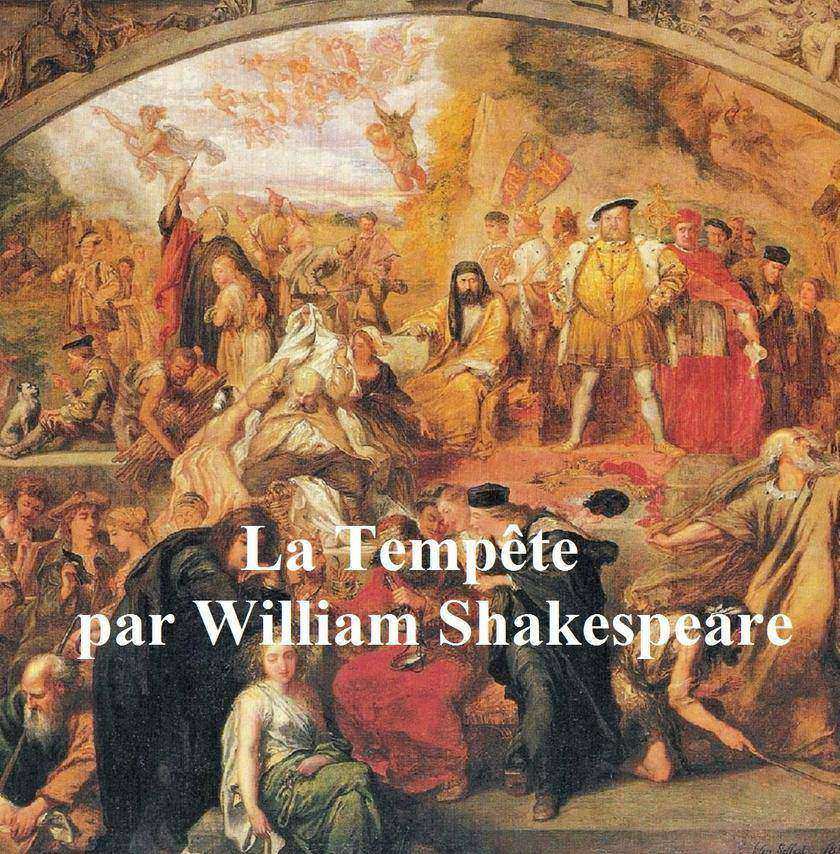
Shakespeare's Tempest in French
¥8.09
Romance Shakespearienne classique en traduction fran?aise. Selon Wikipedia: "The Tempest est une pièce écrite par William Shakespeare.Beaucoup de chercheurs croient qu'il a été écrit en 1610-11, bien que certains chercheurs ont plaidé pour une date plus t?t. Folio de 1623, de nombreux éditeurs modernes ont depuis ré-étiqueté le jeu. Il n'a pas attiré beaucoup d'attention avant la fermeture des thé?tres en 1642 et après la Restauration, il n'a atteint la popularité que dans des versions adaptées. rétablir le texte shakespearien original au milieu du XIXe siècle, et au XXe siècle, les critiques et les spécialistes ont entrepris une réévaluation significative de la valeur de la pièce, dans la mesure où elle est maintenant considérée comme l'une des plus grandes ?uvres de Shakespeare.
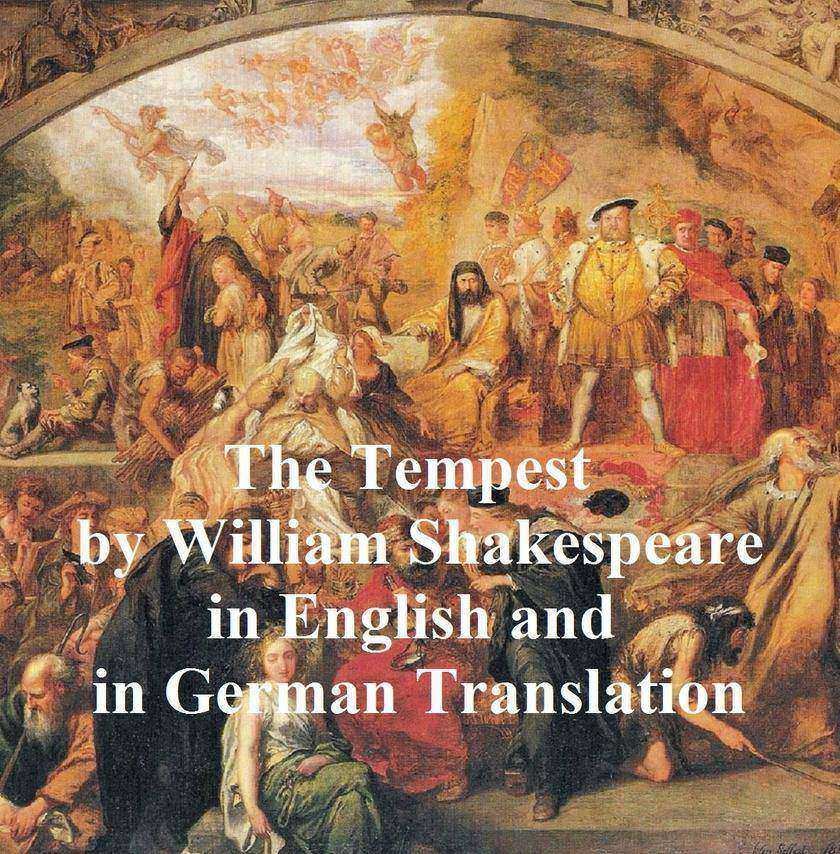
The Tempest/ Der Sturm: Bilingual edition
¥8.09
Klassische Shakespeare-Romantik auf Englisch mit Zeilennummern und in deutscher ?bersetzung. Laut Wikipedia: "The Tempest ist ein Stück von William Shakespeare geschrieben. Viele Gelehrte glauben, dass es in 1610-11 geschrieben wurde, obwohl einige Forscher für eine frühere Datierung argumentiert haben. W?hrend als Kom?die aufgelistet, als es ursprünglich in der ersten ver?ffentlicht wurde Folio von 1623, viele moderne Redakteure haben seitdem das Spiel als eine Romanze bezeichnet, die vor der Schlie?ung der Theater im Jahre 1642 keine nennenswerte Aufmerksamkeit auf sich zog und nach der Restauration nur in adaptierten Versionen Popularit?t erlangte den originalen Shakespeare-Text in der Mitte des 19. Jahrhunderts wieder einzuführen, und im 20. Jahrhundert haben Kritiker und Gelehrte eine signifikante Neubewertung des Spielwerts vorgenommen, in dem Ma?e, als es jetzt als eines von Shakespeares gr??ten Werken gilt. "
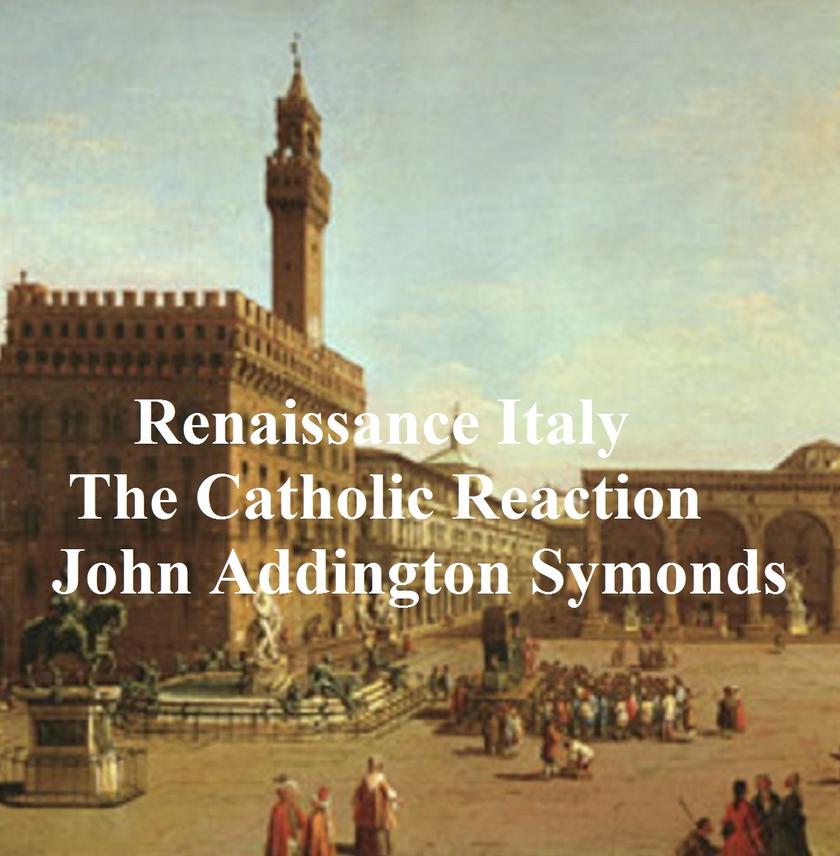
Renaissance in Italy: The Catholic Reaction
¥8.09
According to Wikipedia: "John Addington Symonds (5 October 1840 - 19 April 1893) was an English poet and literary critic… Meanwhile he was occupied with his major work, Renaissance in Italy, which appeared in seven volumes at intervals between 1875 and 1886. The Renaissance had been the subject of Symonds' prize essay at Oxford, and this had aroused a desire to produce a more complete picture of the reawakening of art and literature in Europe... He practically made his home at Davos. A charming picture of his life there is drawn in Our Life in the Swiss Highlands (1891). Symonds became a citizen of the town; he took part in its municipal business, made friends with the peasants and shared their interests. There he wrote most of his books: biographies of Shelley (1878), Philip Sidney (1886), Ben Jonson (1886) and Michelangelo (1893), several volumes of poetry and essays, and a translation of the Autobiography of Benvenuto Cellini (1887). There, too, he completed his study of the Renaissance, the work for which he is mainly remembered."

Poetry of Architecture
¥8.09
"The architecture of the nations of Europe considerd inits association with natural sceneery and national characteristics." With 15 illustrations. According to Wikipedia: "John Ruskin (8 February 1819 – 20 January 1900) is best known for his work as an art critic, stage writer, and social critic, but is remembered as an author, poet and artist as well. Ruskin's essays on art and architecture were extremely influential in the Victorian and Edwardian eras."
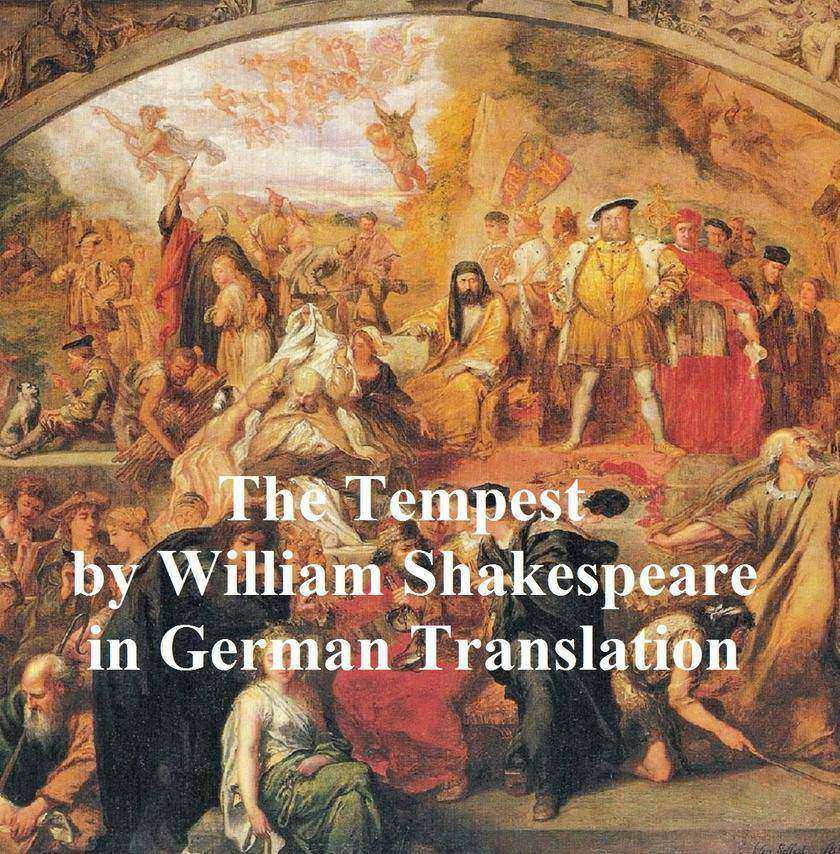
Der Sturm
¥8.09
Klassische Shakespeare-Romantik in deutscher ?bersetzung. Nach Wikipedia: "The Tempest ist ein Stück von William Shakespeare geschrieben. Viele Forscher glauben, dass es in 1610-11 geschrieben wurde, obwohl einige Wissenschaftler für ein früheres Datum argumentiert haben." Folio 1623, haben viele moderne Redakteure Seit dem Umbau der Theater im Jahr 1642 und nach der Restauration, wurde es nur in angepassten Versionen beliebt.Restore den ursprünglichen Shakespeare-Text in der Mitte der Im neunzehnten Jahrhundert und im zwanzigsten Jahrhundert unternahmen Kritiker und Gelehrte eine bedeutende Neubewertung des Wertes des Stückes, da es jetzt als eines der gr??ten Werke Shakespeares gilt."
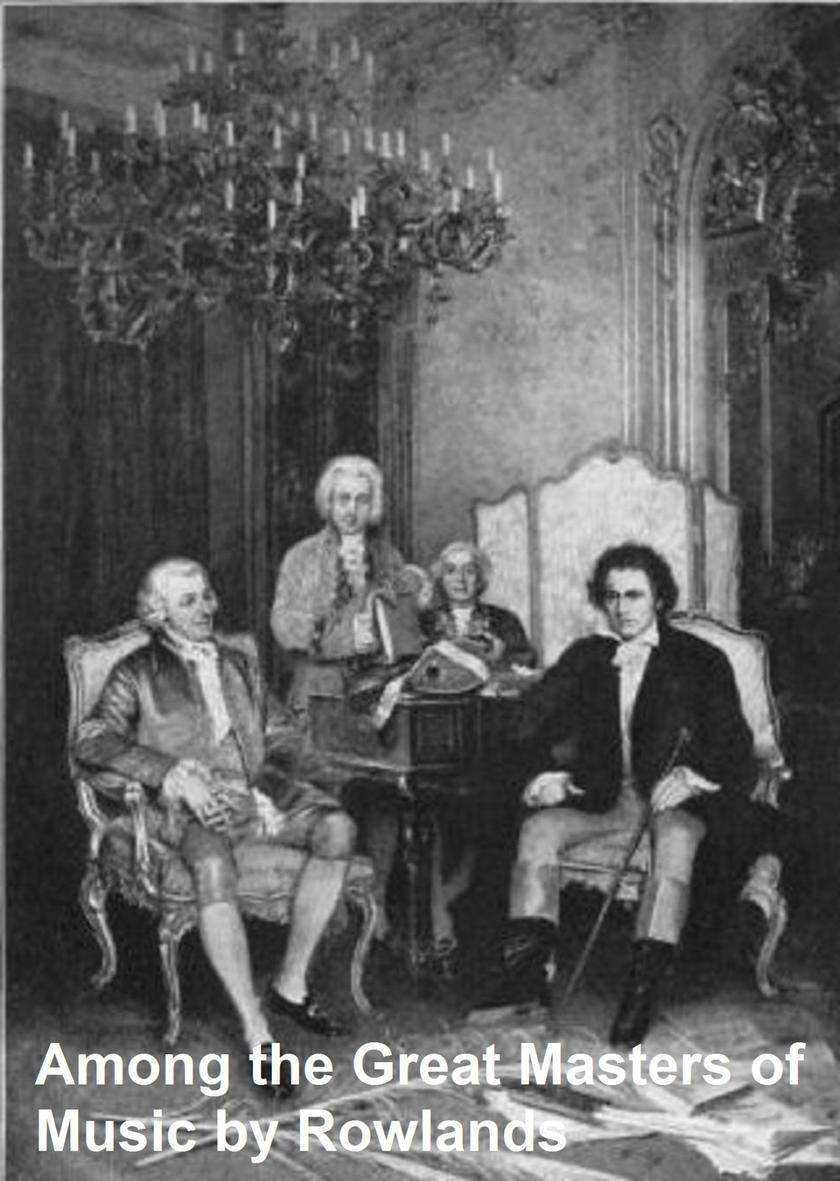
Among the Great Masters of Music
¥8.09
First published in 1906. 32 illustrations. Chapters cover: St. Cecilia, Palestrina, Lulli, Stradivarius, Tartini, Bach, Handel, Bluck, Mozart, Linley, Haydn, Web, Beethoven, Schubert, Rouget de Lisle, Paganini, Mendelssohn, Chopin, Meyerbeer, Wagner, and Liszt.
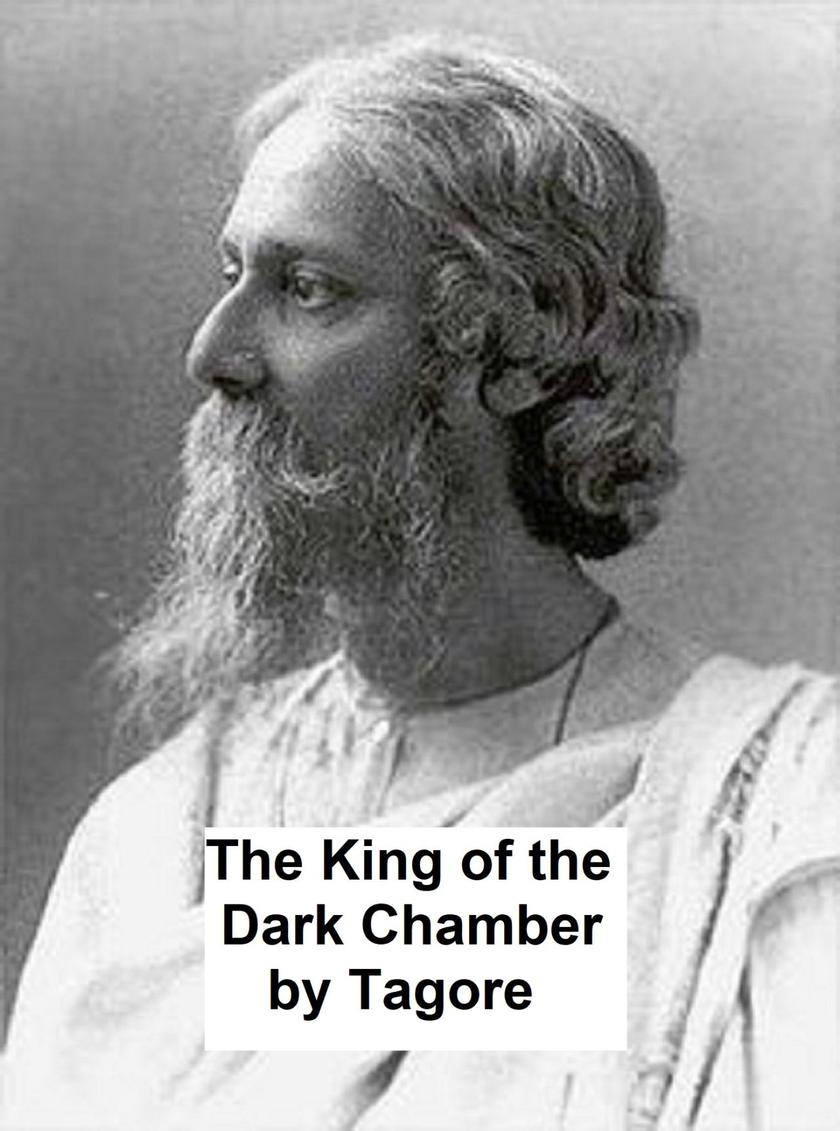
The King of the Dark Chamber
¥8.09
According to Wikipedia: "Rabindranath Tagore (7 May 1861 – 7 August 1941), sobriquet Gurudev, was a Bengali poet, novelist, musician, painter and playwright who reshaped Bengali literature and music. As author of Gitanjali and its "profoundly sensitive, fresh and beautiful verse", he was the first non-European who was awarded the Nobel Prize for Literature in 1913. His poetry in translation was viewed as spiritual, and this together with his mesmerizing persona gave him a prophet-like aura in the west. His "elegant prose and magical poetry" still remain largely unknown outside the confines of Bengal."
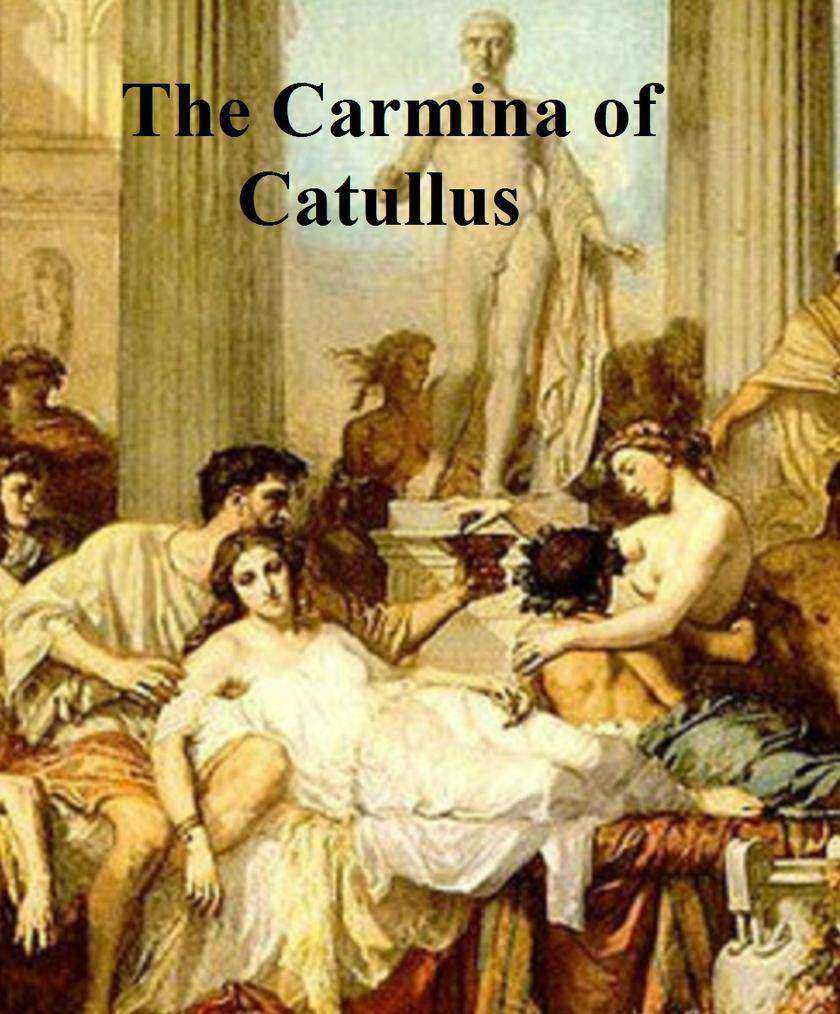
The Carmina of Catullus
¥8.09
Sir Richard Burton's racy English translation of Latin poetry. This edition includes the original Latin, plus Burton's verse translation, plus Leonard Smither's prose translation. According to Wikipedia: "Gaius Valerius Catullus (ca. 84 BC – ca. 54 BC) was a Roman poet of the 1st century BC. His surviving works are still read widely, and continue to influence poetry and other forms of art." "Captain Sir Richard Francis Burton KCMG FRGS (19 March 1821 – 20 October 1890) was an English explorer, translator, writer, soldier, orientalist, ethnologist, linguist, poet, hypnotist, fencer and diplomat. He was known for his travels and explorations within Asia and Africa as well as his extraordinary knowledge of languages and cultures. According to one count, he spoke 29 European, Asian, and African languages. Burton's best-known achievements include traveling in disguise to Mecca, making an unexpurgated translation of The Book of One Thousand Nights and A Night (the collection is more commonly called The Arabian Nights in English because of Andrew Lang's abridgement) and the Kama Sutra and journeying with John Hanning Speke as the first Europeans, guided by Omani merchants who traded in the region, to visit the Great Lakes of Africa in search of the source of the Nile. He was a prolific author and wrote numerous books and scholarly articles about subjects including travel, fencing and ethnography. He was a captain in the army of the East India Company serving in India (and later, briefly, in the Crimean War). Following this he was engaged by the Royal Geographical Society to explore the east coast of Africa and led an expedition guided by the locals which discovered Lake Tanganyika. In later life he served as British consul in Fernando Po, Damascus and, finally, Trieste. He was a Fellow of the Royal Geographical Society and was awarded a knighthood (KCMG) in 1886."
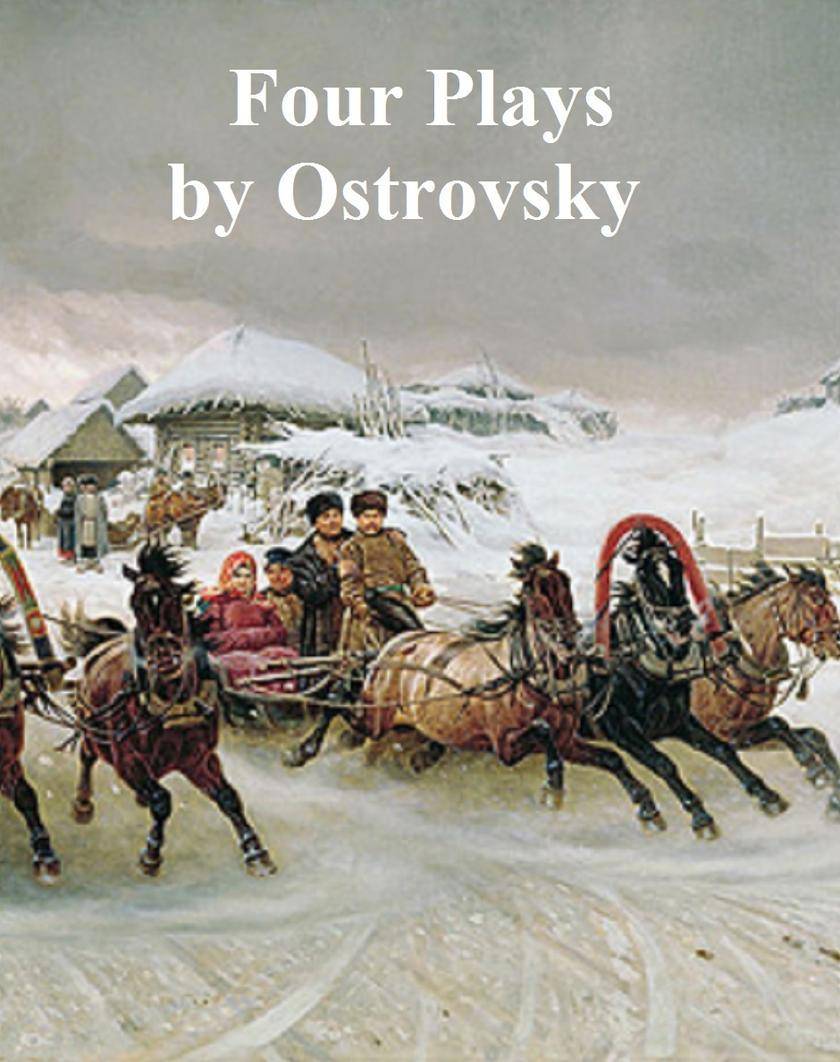
Four Plays
¥8.09
Four classic Russian plays. According to the introduction, "ALEXANDER NIKOLAYEVICH Ostrovsky (1823-86) is the great Russian dramatist of the central decades of the nineteenth century, of the years when the realistic school was all-powerful in Russian literature, of the period when Turgenev, Dostoyevsky, and Tolstoy created a literature of prose fiction that has had no superior in the world's history. His work in the drama takes its place beside theirs in the novel. Obviously inferior as it is in certain ways, it yet sheds light on an important side of Russian life that they left practically untouched."
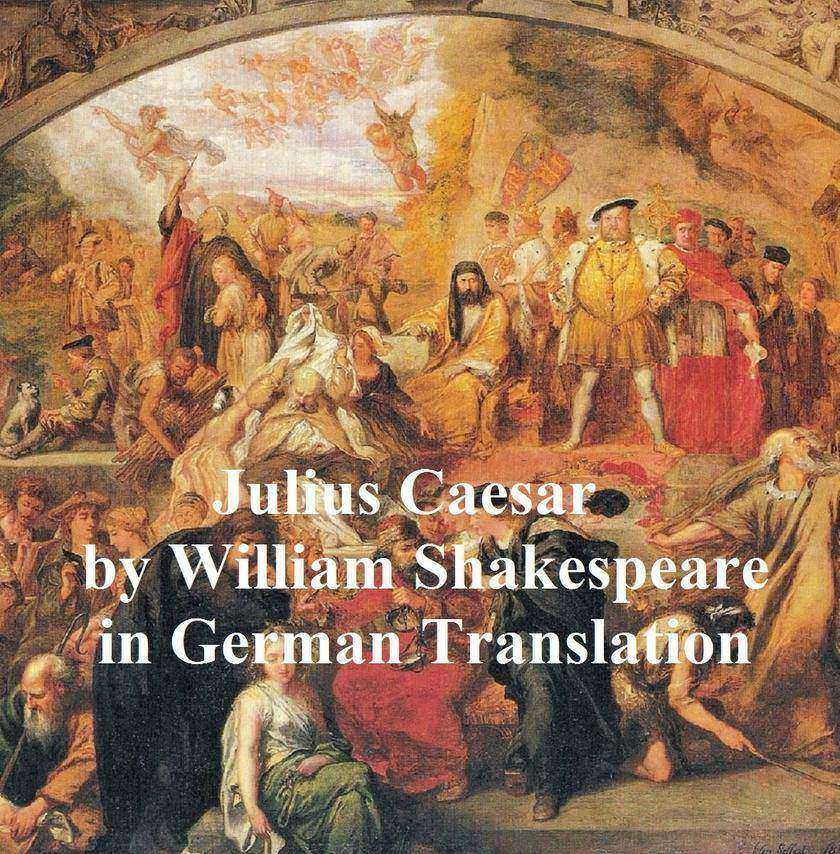
Julius Caesar
¥8.09
Der Shakespeare-Klassiker, übersetzt von August Wilhelm von Schlegel. Laut Wikipedia: "Der Geist Caesars verspottet Brutus über seine bevorstehende Niederlage. (Kupferstich von Edward Scriven aus einem Gem?lde von Richard Westall: London, 1802.) Die Trag?die von Julius Caesar, auch einfach Julius C?sar genannt, ist eine Trag?die von William Shakespeare, von dem man annimmt, dass es im Jahr 1599 geschrieben wurde, und die Verschw?rung gegen den r?mischen Diktator Julius Caesar, seine Ermordung und die Niederlage der Verschw?rer in der Schlacht von Philippi darstellt. Es ist eines von mehreren r?mischen Theaterstücken, die Shakespeare schrieb. basierend auf wahren Ereignissen aus der r?mischen Geschichte, zu denen auch Coriolanus und Antonius und Kleopatra geh?ren. "
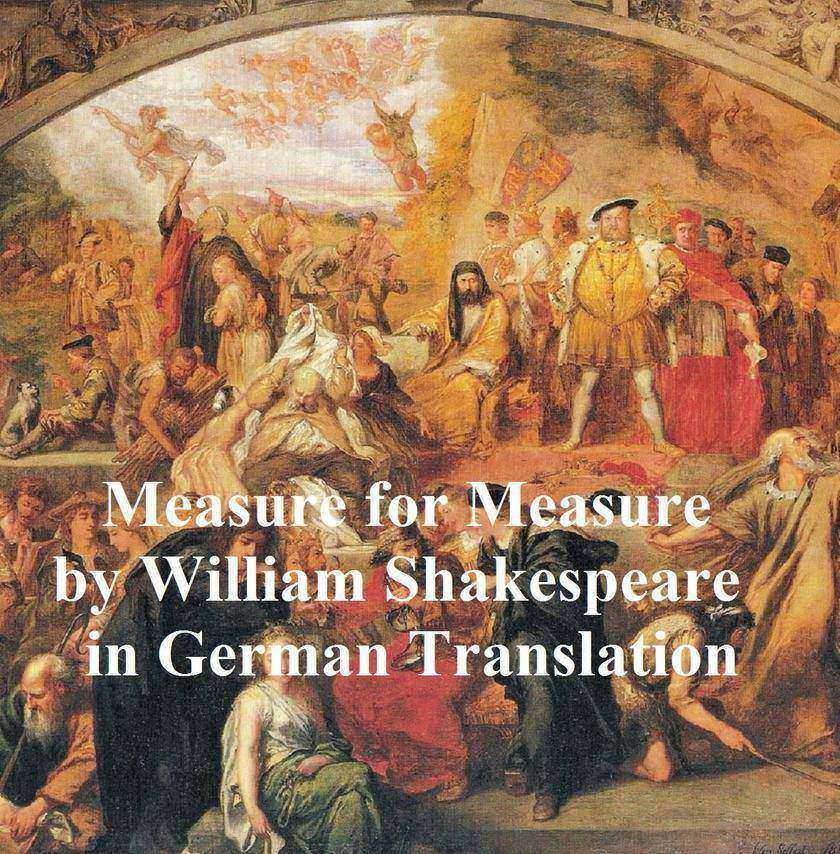
Maass fur Maas oder Wie Einer Misst so Wird Ihm Wider Gemessen
¥8.09
Shakespeare-Kom?die, ins Deutsche übersetzt. Laut Wikipedia ist "Measure for Measure" ein Stück von William Shakespeare, das 1603 oder 1604 geschrieben wurde. Es wurde (und wird weiterhin) als Kom?die klassifiziert, aber seine Stimmung widersetzt sich diesen Erwartungen Eine Vielzahl von Gründen wurde von einigen Kritikern als eines von Shakespeares Problemspielen bezeichnet.Erst im First Folio von 1623 ver?ffentlicht (wo es zuerst als Kom?die bezeichnet wurde), war die erste Aufnahme des Stücks 1604. Das Stück handelt von den Themen der Barmherzigkeit, der Gerechtigkeit und der Wahrheit und ihrer Beziehung zu Stolz und Demut: "Einige erheben sich aus der Sünde und einige aus der Tugend fallen."
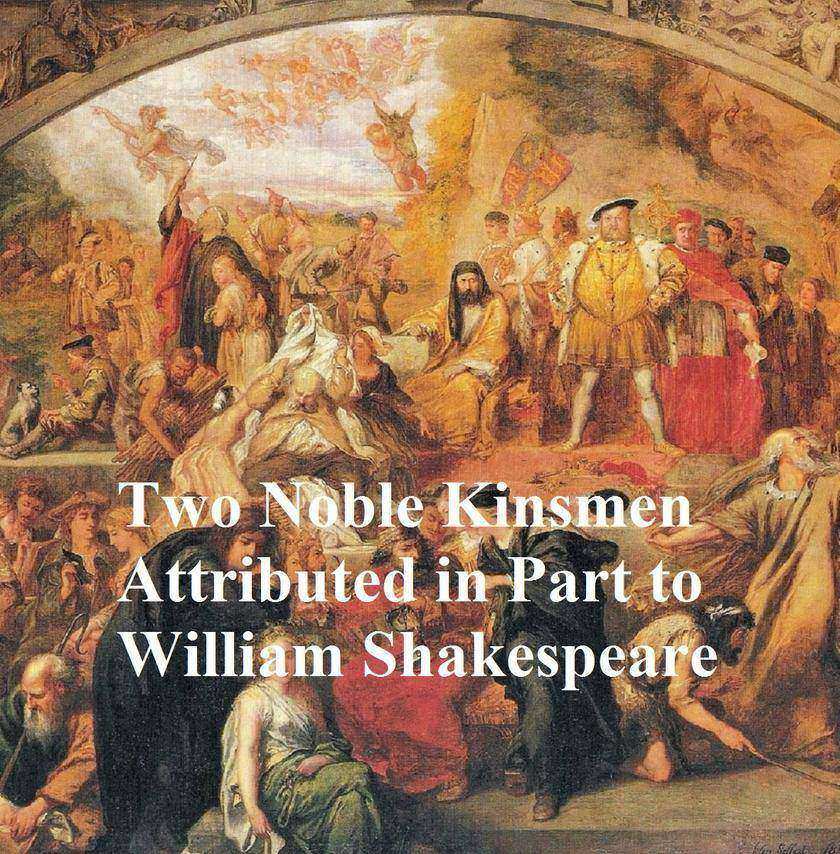
The Two Noble Kinsmen
¥8.09
Play sometimes attributed to John Fletcher and William Shakespeare. According to Wikipedia: "William Shakespeare (baptised 26 April 1564 – died 23 April 1616) was an English poet and playwright, widely regarded as the greatest writer in the English language and the world's pre-eminent dramatist. He is often called England's national poet and the "Bard of Avon" (or simply "The Bard"). His surviving works consist of 38 plays, 154 sonnets, two long narrative poems, and several other poems. His plays have been translated into every major living language, and are performed more often than those of any other playwright."
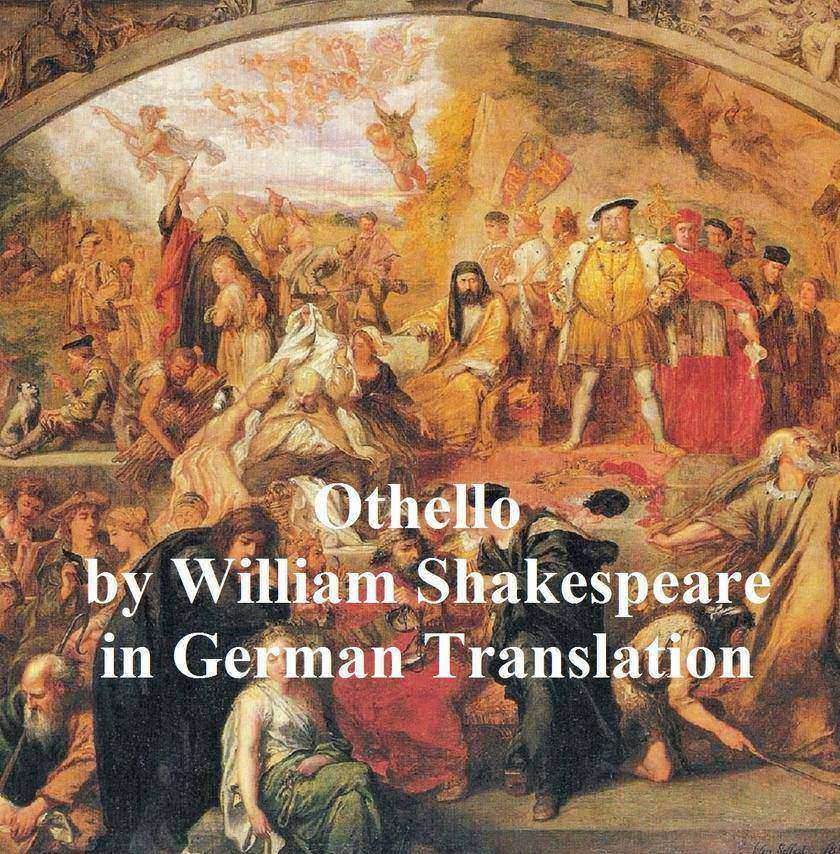
Othello der Mohr von Venedig
¥8.09
Die Shakespeare-Trag?die, übersetzt von Christoph Martin Wieland. Laut Wikipedia: "Die Trag?die von Othello, der Mohr von Venedig ist eine Trag?die von William Shakespeare, vermutlich um 1603 geschrieben, und basiert auf der italienischen Kurzgeschichte Un Capitano Moro (" Ein maurischer Kapit?n ") von Cinthio, ein Schüler von Boccaccio, der erstmals 1565 ver?ffentlicht wurde. Das Werk dreht sich um vier Hauptfiguren: Othello, ein maurischer General in der venezianischen Armee, seine Frau Desdemona, sein Leutnant Cassio und seine vertraute F?hnrich Jago.
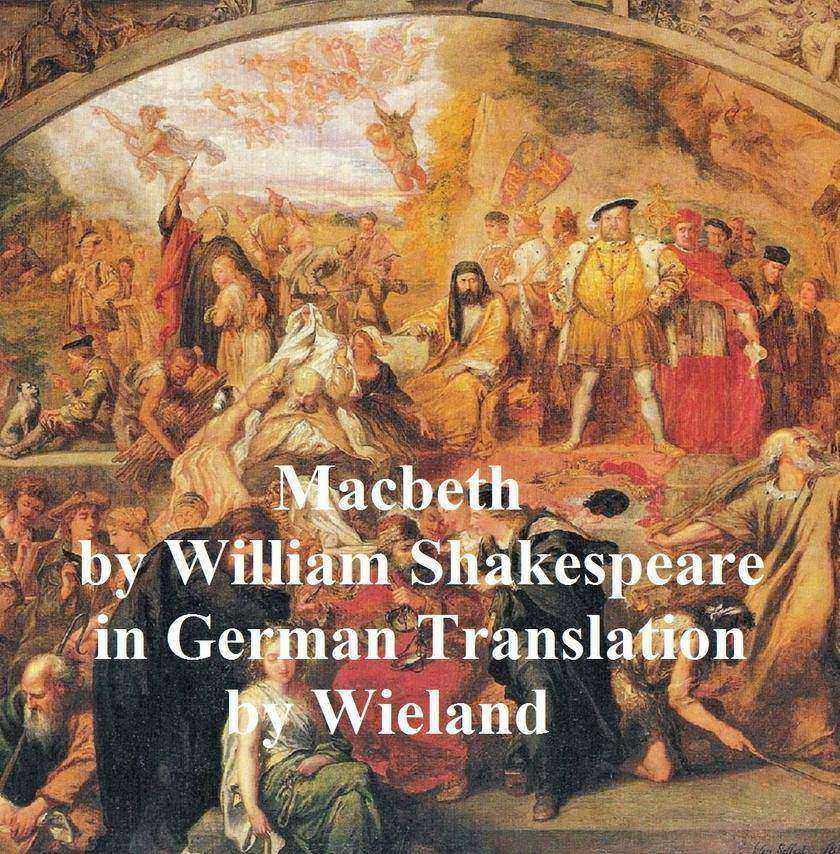
Macbeth
¥8.09
Die Shakespeare Trag?die, in Englisch, mit Zeilennummern, und übersetzt von Christoph Martin Wieland ins Deutsche. Laut Wikipedia: "Die Trag?die von Macbeth (allgemein Macbeth genannt) ist eine Trag?die von William Shakespeare über einen Mann, der K?nigsmord begeht und dann weitere Morde begeht, um seine Macht zu behalten. Das Spiel zeigt deutlich die korrumpierende Wirkung des Ehrgeizes Es geht aber auch um die Beziehung zwischen Grausamkeit und M?nnlichkeit, Tyrannei und K?nigtum, Verrat, Gewalt, Schuld, Prophetie und St?rung der natürlichen Ordnung.
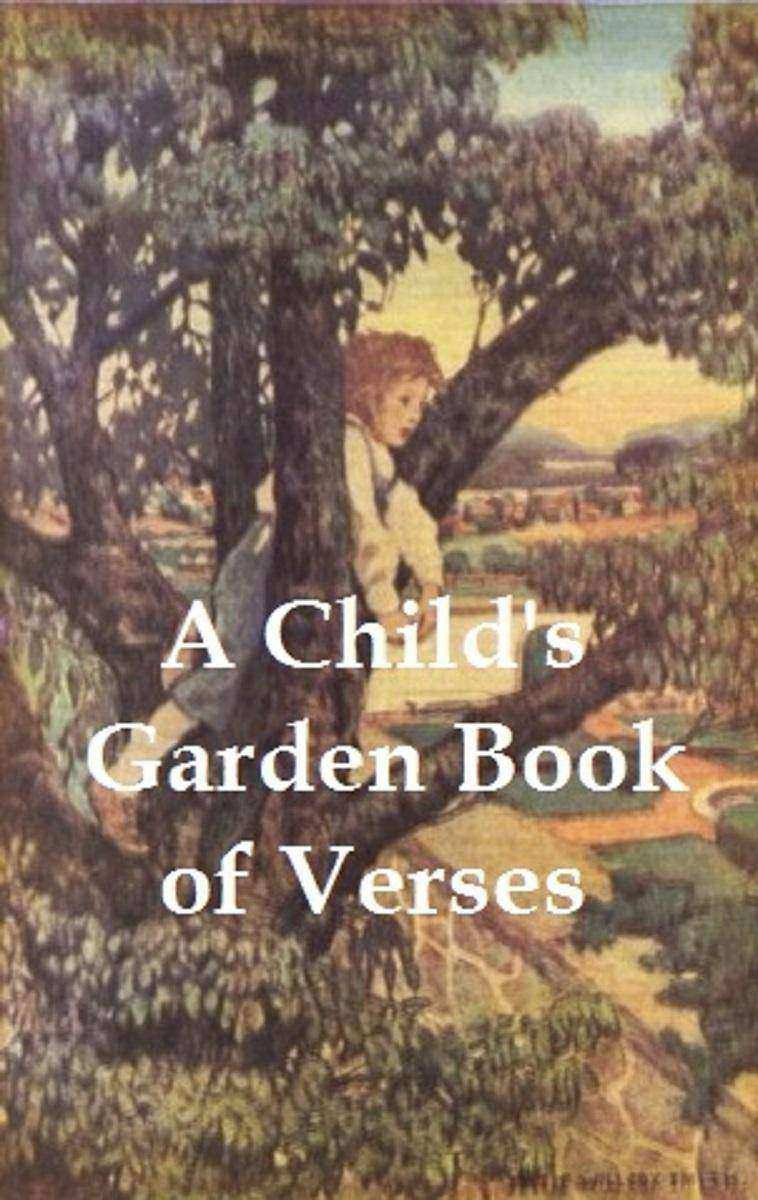
A Child's Garden of Verses
¥8.09
80 illustrations, some color, some black-and-white. According to Wikipedia: "A Child's Garden of Verses is a collection of poetry for children by the Scottish author Robert Louis Stevenson. The collection first appeared in 1885 under the title Penny Whistles, but has been reprinted many times, often in illustrated versions. It contains about 65 poems including the cherished classics "Foreign Children," "The Lamplighter," "The Land of Counterpane," "Bed in Summer," "My Shadow" and "The Swing."
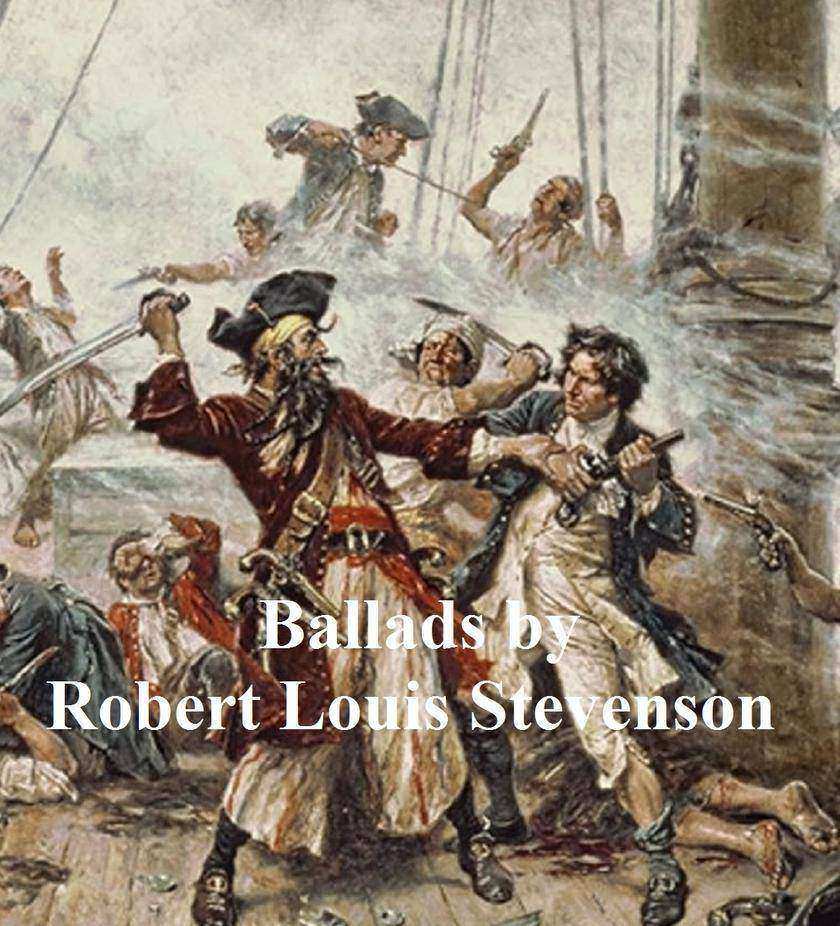
Ballads
¥8.09
Poetry. According to Wikipedia: "Robert Louis (Balfour) Stevenson (1850 - 1894), was a Scottish novelist, poet, and travel writer, and a leading representative of Neo-romanticism in English literature. He was the man who "seemed to pick the right word up on the point of his pen, like a man playing spillikins", as G. K. Chesterton put it. He was also greatly admired by many authors, including Jorge Luis Borges, Ernest Hemingway, Rudyard Kipling, Vladimir Nabokov, and J. M. Barrie. Most modernist writers dismissed him, however, because he was popular and did not write within their definition of modernism. It is only recently that critics have begun to look beyond Stevenson's popularity and allow him a place in the canon."
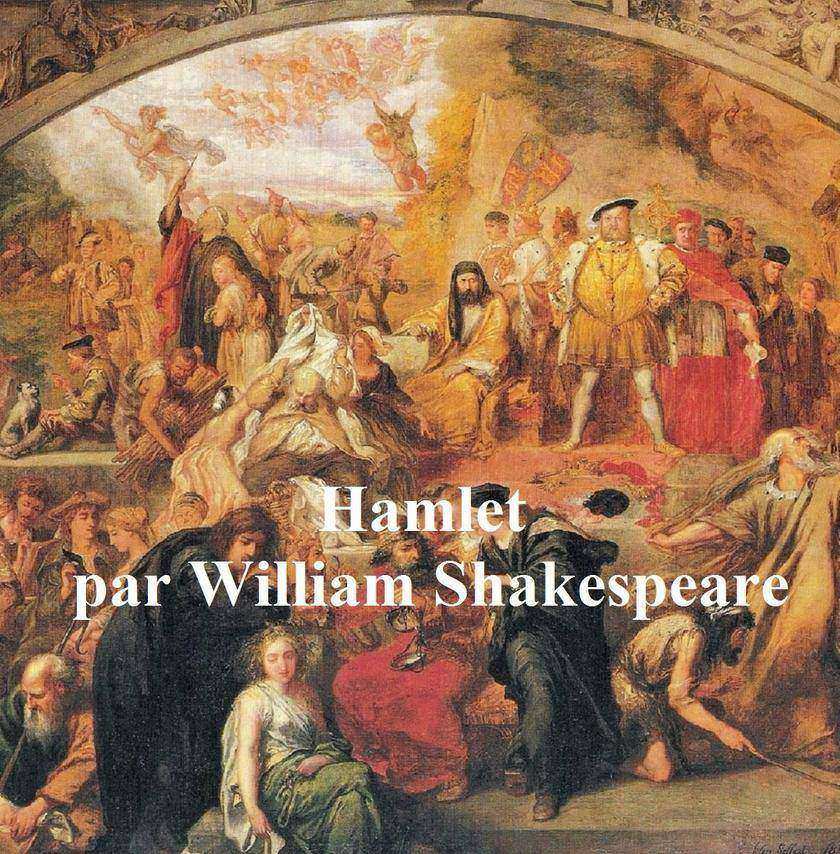
Hamlet in French
¥8.09
Traduit par Fran?ois Pierre Guillaume Guizot (1787 - 1874), historien fran?ais et homme d'?tat. Publié en 1864. Selon Wikipedia: ?La tragédie de Hamlet, prince du Danemark, est une tragédie de William Shakespeare, qui se déroule au royaume du Danemark et qui dramatise la vengeance du prince Hamlet sur son oncle Claudius pour le meurtre du roi Hamlet, le frère de Claude et le père du prince Hamlet, puis succédant au tr?ne et prenant pour épouse Gertrude, la veuve du vieux roi et la mère du prince Hamlet.La pièce dépeint vivement la folie vraie et feinte - de la douleur accablante à la rage bouillonnante - et explore des thèmes de trahison, la vengeance, l'inceste et la corruption morale.




 购物车
购物车 个人中心
个人中心



